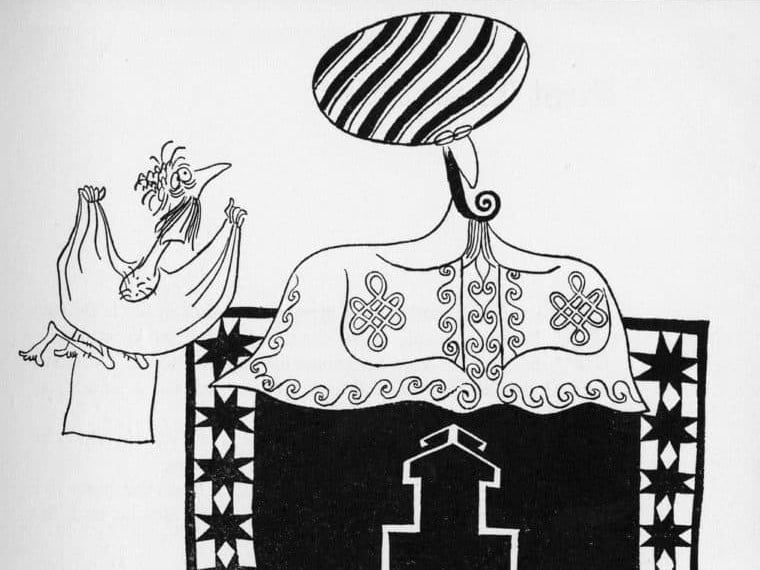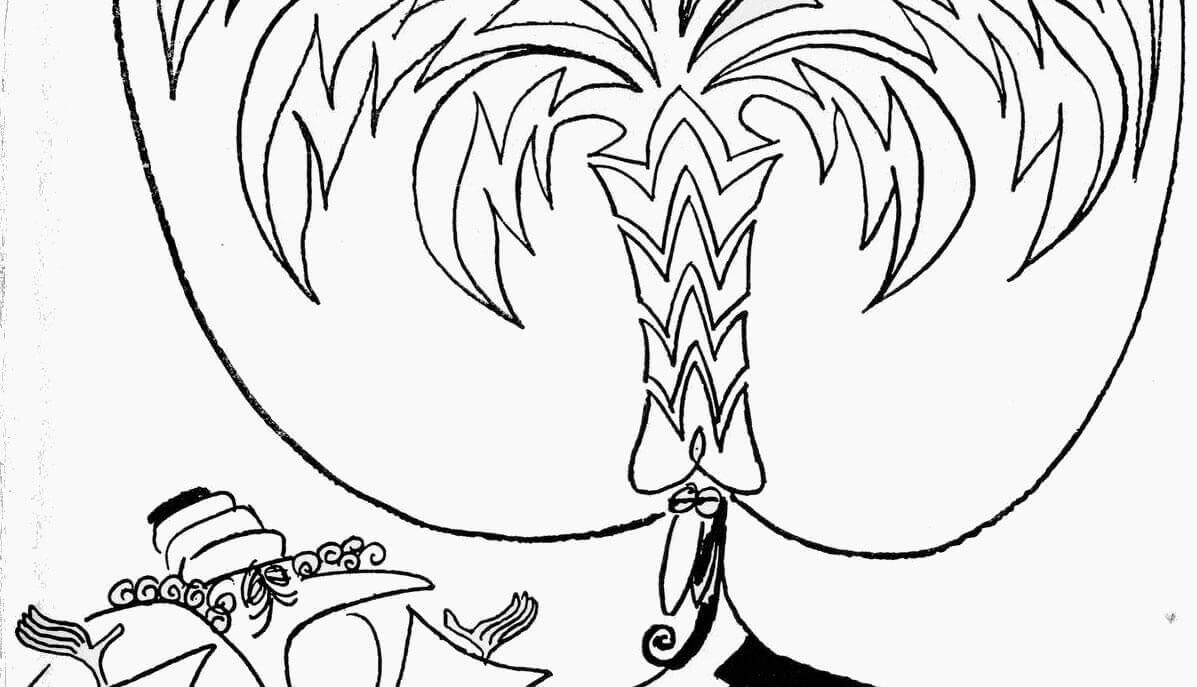The Ottoman coffeehouses, where Nasreddin Hodja works, couldn’t get better advertisement than its own delicious diverting roasting-coffee smell; which pulls locals and tourists alike, to wait for fresh coffee in surprisingly orderly lines that snake deep into the grand bazaar in Istanbul.
In this Article
It is a literal hole in the wall, with no indoor seating, simply wooden stools clustered near the counter, a great place to take a break, watch cats and doves and the diverse crowd, we been of course trying to get a Türk kahvesi.
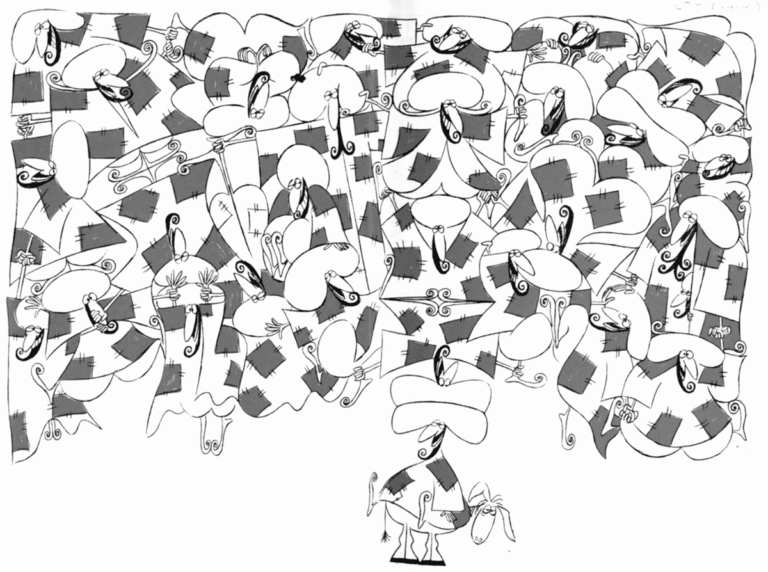
Nasreddin was the waiter in this coffeehouse, he was told that he had to always make sure the customers would be kept satisfied. One day the restaurant had run out of cream when I asked for coffee without cream.
Nasreddin who wanted to keep me satisfied said, “We don’t have any cream today but we have plenty of milk. May I bring you coffee without Milk instead?”
In Turkey, we have been told, you never, ever drink coffee with milk, but sugar, yes plenty of sugar and Lokum, of course.
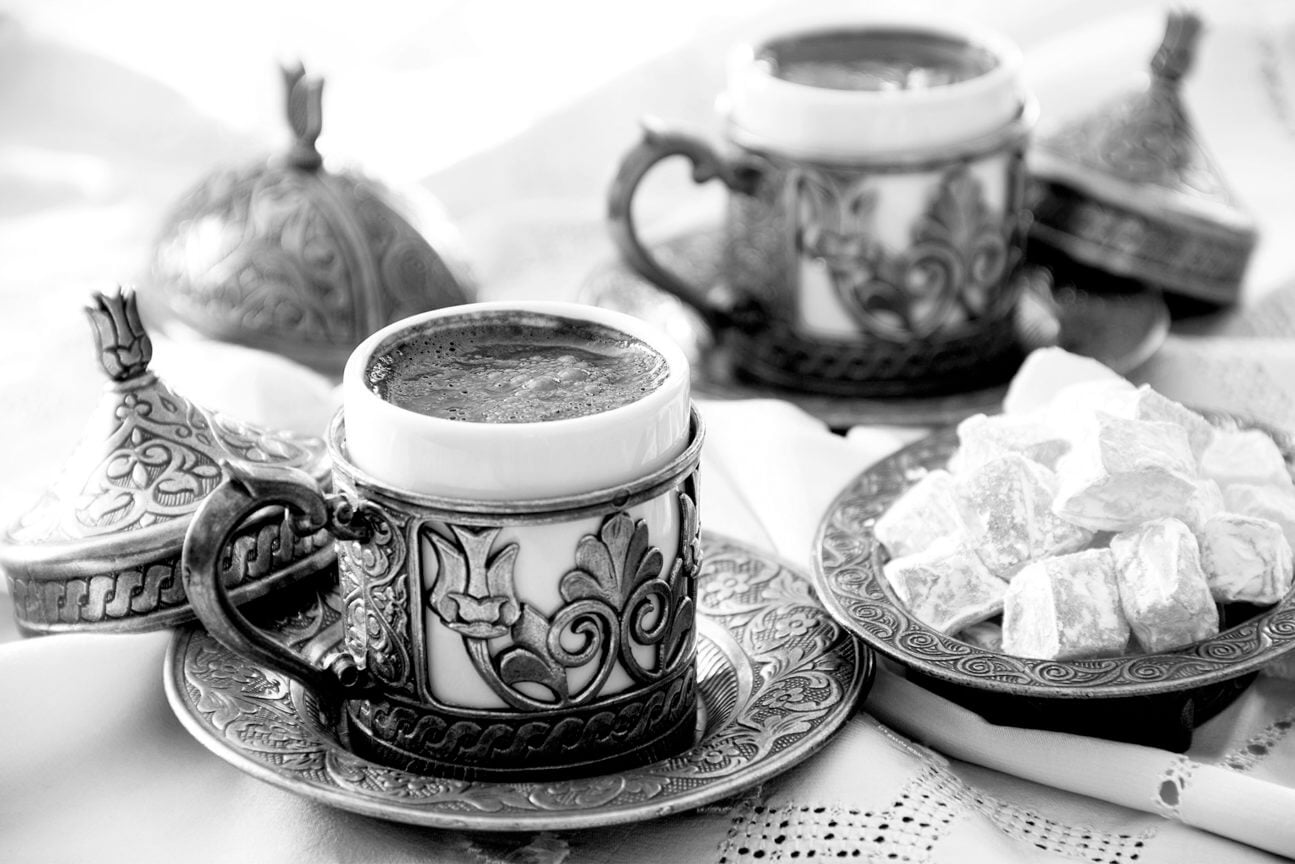
The moon is more useful than the sun
One day Mullah Nasreddin entered his favorite coffeehouse and declared,
“The moon is more useful than the sun”. An old man asked, “Why Mullah?” Mullah Nasreddin replied, “Because we need the light more during the night than during the day”.
Another day Nasreddin emerged form the mosque after prayers, a beggar sitting on the street solicited alms. The following conversation happened:
“Are you extravagant?” asked Nasreddin.
“Yes Nasreddin.” replied the beggar.
“Do you like sitting around drinking coffee and smoking?” asked Nasreddin.
“Yes.” replied the beggar.
“I suppose you like to go to the baths everyday?” asked Nasreddin.
“Yes.” replied the beggar.
“…And maybe amuse yourself, even, by drinking with friends?” asked Nasreddin.
“Yes I like all those things.” replied the beggar.
“Tut, Tut,” said Nasreddin, and gave him a gold piece.
A few yards farther on, another beggar who had overheard the conversation begged for alms also.
“Are you extravagant?” asked Nasreddin.
“No, Nasreddin” replied second beggar.
“Do you like sitting around drinking coffee and smoking?” asked Nasreddin.
“No.” replied second beggar.
“I suppose you like to go to the baths everyday?” asked Nasreddin.
“No.” replied second beggar.
“…And maybe amuse yourself, even, by drinking with friends?” asked Nasreddin.
“No, I want to only live meagerly and to pray.” replied second beggar.
Whereupon the Nasreddin gave him a small copper coin.
“But why? “, wailed second beggar,
“Do you give me, an economical and pious man, a penny, when you give that extravagant fellow a sovereign?”
” Ah my friend,” replied Nasreddin, “his needs are greater than yours.”
How can he lose his reason?
A faithless fellow lives in Nasreddin Hodja’s neighborhood. One day in the coffee house, someone from the attendance says:” this man has lost his reason”. After thinking deeply, Hodja says: “Anyway, that man has never had reason! I wonder how a person without reason can lose his reason! …”
According to Islam, only those who have reason can be pious. Those who don’t have reason are not responsible. That is to say, a faithless man who leads a devilish life has no reason at all.
Some people say that, whilst uttering what seemed madness, he was, in reality, divinely inspired, and that it was not madness but wisdom that he uttered.
The Turkish Jester or The Pleasantries of Cogia Nasr Eddin Effendi
The Turkish Jester and storyteller Nasreddin Hodja
This stories all come from Mulla Nasreddin who has most probably lived in present-day Turkey in the 13th century. With wit, cunning and intellect this wise fool leads the brave and humorless petty bourgeois by the nose and amuses many generations.
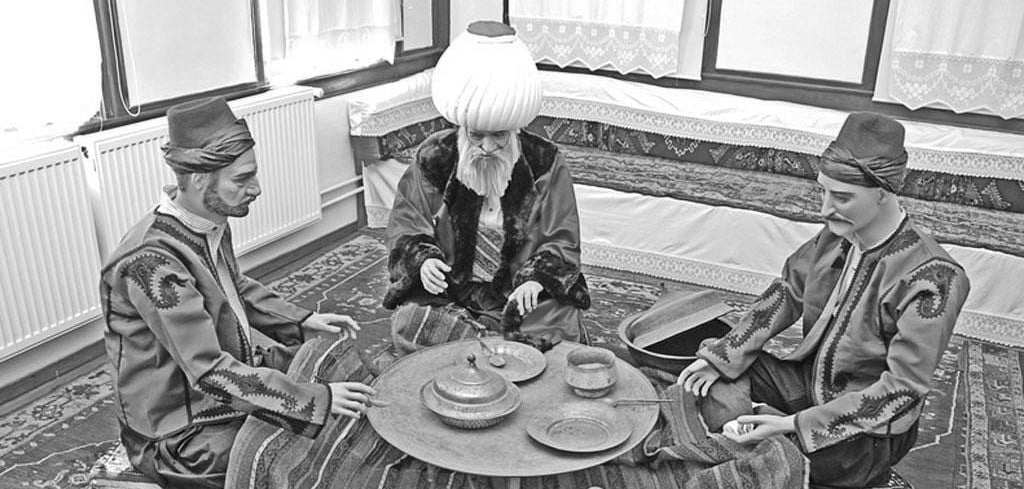
Nasrettin Hoca Ethnography & Archaeology Museum, Konya, Türkiye.
According to various sources, Nasr Ad-Din Khodja was a philosopher, a wise, sharp-tongued man with a healthy sense of humor. His stories spread across the Turkish Ottoman world to Persia, Arabia and Africa – and the Silk Road to China and India.
In different times and in different places this Storyteller has been known by different names. Known as Nasreddin Hodja in the Turkish world
Some of the names used in other countries are
“Nesirdin Ependi, Ependi (East Türkistan), Kocanasır/Kojanasır (Kazakistan), Apendi (Kırghızistan), Hojanasreddin (Karakalpak Turks), Efendi (Tacikistan), Hâce Nasreddîn (Başkurtistan), Nasriddin Afandi, Afandi (Özbekistan), Ependi, Nasreddin Ependi (Türkmenistan), Molla Nesreddin (Azerbaijan), Molla Nasreddin (Iraki Türkmen), Nasır (Karaçay), Molla Nasreddin, Nasridin (Kumuklar), Nasreddin Oca (Crimean Tatars), Nasreddin Hodja (Turkish Republic of Northern Cyprus, Western Thrace), Nastradin, Nastradin (the Gagavuz Turk), Nusrettin, Molla Nasrettin (Ahıska Turks), Nastredin (Balkan Turks), Molla Nasreddin, Nasridin, Molla Nasruddinni (Kumuk Turks-Dagestan), Nasra (Karaçaylar)”.
“Nasiruddin Hojjga (Bangladesh), Molla Nasirudin, Molla Nasıruddin, Nasreddin Hodja (Pakistan), Molla Nasreddîn, Molla (Iran), Nasreddin (Russia), Afanti (China), Nasaret (Chechenistan), Nasreddin Hodzsa, Nasreddin Hodsa (Hungary), Nasratin Hogea (Romania), Nasraldi (Bulgaria), Nasreddin Xotzas, Anastratin (Greece), Koja (Nogay Turks), Nusreddin, Gasdanî, Aslanî (Greek Cypriots), Nasradin, Strandilhoca, Stradin (Macedonia), Nasrudin Hodza (Bosnia and Herzegovina), Nastro, Nastroya (Albania), Nasrudin Hodza, Nasradin (Serbia), Hoscha Nasreddin, Hodscha Nasreddin, Nasreddin Chodja (Germany), Nasreddin Hodja (France), Molla, Molla Nasreddin (India)”.

As generations have gone by, new stories have been added to the Nasreddin corpus, others have been modified. The themes in the tales have become part of the folklore of a number of people and express the imaginations of a variety of cultures. Although most of them depict Nasreddin in an early small-village setting, the stories deal with concepts that have a certain timelessness. They purvey a pithy folk wisdom that triumphs over all trials and tribulations.
Many are the result of collective humor – not only of Turkish or Ottoman but also of members of non Muslim cultures. Turks call it “Nasreddin Hodja,” a name that crystallizes in an otherwise informal, popular tradition of aphorisms, epigrams, jokes, jesters, and anecdotes of various origins.
The creation of new proverbs or sayings from the nucleus of a Nasreddin Hodja anecdote has a hand in the enrichment and development of the Turkish language. The punch line of these anecdotes which contains the essence of the humor becomes transformed into a saying or proverb. The following example is a phrase which, embedded
in the daily speech of the Turkish people, has its source in the stories of Nasreddin Hodja:
“The man who grinds the coffee must be able to groan like a man who cuts wood.”
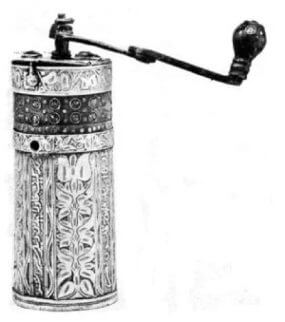
In the Metropolitan Museum of Art, New York
Historically the roasted coffee beans were crushed down into a fine powder with a stone mortar and pestle. The traditional Turkish cylindrical coffee mill, Kahve degirmeni, came to use in the 15th century. It is a manual, conical device with a specially designed burr grinding mechanism, calibrated to grind coffee beans into a very fine powder. It requires some manual dexterity, and physical effort to use.
The Nasreddin stories are known throughout the Middle East and have touched cultures around the world.
Many nations of the Middle East claim the Mullah as their own, however, the Mullah, like all mythological characters, belongs to all humanity.
That is why, the Telling Tradition of Nasreddin Anecdotes has been inscribed on the UNESCO Representative List of the Intangible Cultural Heritage of Humanity in 2022.
The telling tradition of Nasreddin Hodjas Anecdotes – a philosopher and wise man – is recognized for his wisdom and humorous analyses and representations of society and life experiences. Although there are slight differences across communities in terms of imagery, character names and stories, the Mulla is shared as a common heritage in Azerbaijan, Kazakhstan, Kyrgyzstan, Tajikistan, turkey- Türkiye, Turkmenistan and Uzbekistan. Characterized by their wisdom, witty repartee, absurdity and element of surprise, the Nasreddin anecdotes often break with accepted norms, with the narrator finding unexpected ways out of complicated situations and always coming out as the winner by the power of word.
~ ○ ~
Keep exploring:
Works Cited & Multimedia Sources
The history of coffee is an extraordinary study. If you would like to learn more about it, we heartily recommend the book, All About Coffee, by William Ukers. Written in 1928, it is as good a book on coffee as has been written and will delight you with detail.
- Idries Shah. The Pleasantries of the Incredible Mulla Nasrudin. Le Cain (Illustration). 1975.
- Nasreddin. From Wikipedia.
- Nasrudin’s Blog.
- Özdemir Nebi. The Philosopher’s Philosopher Nasreddin Hodja. Ankara: Ministry of Culture and Tourism. 2011.
- Sufism/Nasrudin.
- The Turkish Jester by George Borrow.
- © Williams Richard. Mulla Nasrudin.
